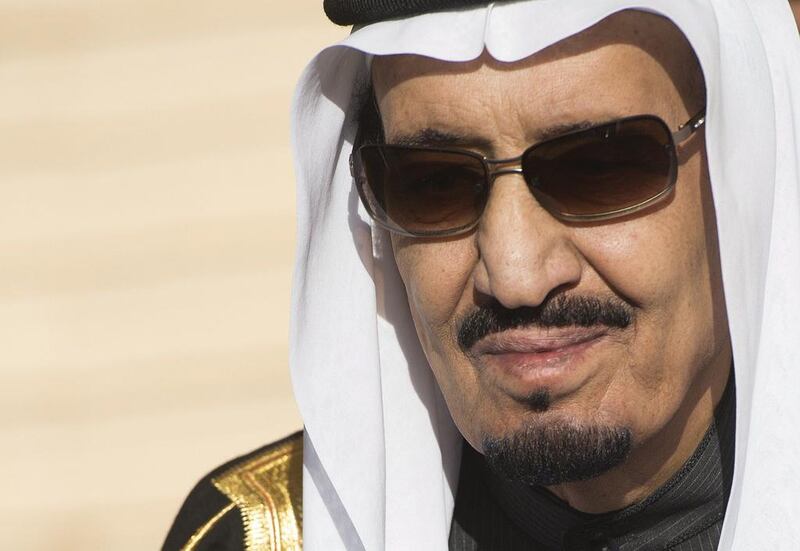Several of Saudi Arabia’s largest companies announced payouts worth hundreds of millions of dollars on Monday, days after the new king ordered a two-month bonus for all Saudi state employees.
Saudi Electricity, 81 per cent owned by the government, will pay two months’ salary “for all key Saudi staff and trainees”, the Gulf’s largest utility company announced. It will distribute 545 million riyals (Dh533m) among its Saudi employees, but cap the bonus paid to each staff member at 50,000 riyals.
Saudi Telecom, 70 per cent state-owned, will pay an extra 395 million riyals to its Saudi employees.
Southern Province Cement, which is majority-owned by state funds, said it would pay two months’ salary to Saudi employees and half a month’s pay to non-Saudis.
Last week, King Salman ordered the immediate payment of two months bonus to civil servants and pension to retired government workers, marking his accession to power after the death of his brother King Abdullah.
While King Salman’s announcement did not give a monetary figure, analysts said the payout to state employees could be worth some 70 billion riyals. Additional handouts to pensioners, students and others could make total spending much larger, they said.
The lavish payout is expected to help sustain the kingdom’s consumer boom and reassure financial markets that the government is not slashing expenditure in the face of low oil prices.
Other benefits announced by King Salman will increase spending further. He ordered payments to students, grants to professional associations and sports and literary clubs around the country, and 20 billion riyals in spending to improve electricity and water services, though it was not clear if the utility spending was part of a previously announced plan.
Economists earlier in January predicted slower economic growth this year — with GDP of 3.2 per cent this year, down from 3.6 per cent in 2014 — on the grounds that the plunge in oil prices would cause the kingdom to slow some investments and make the government more cautious about spending.
King Salman’s announcement on Thursday, however, suggested the government remained willing to spend heavily despite the hit to its oil revenues from low prices, and that GDP growth this year might therefore be higher than originally expected.
“I believe it will be growth-supportive — especially on the consumption side,” said Monica Malik, chief economist at Abu Dhabi Commercial Bank.
King Salman’s announcement appeared to take a step back from a pledge in the 2015 budget, which was announced in December when he was already overseeing economic policy, to “rationalise” spending on public salaries.
But it is in a long Saudi tradition of welfare handouts at times of political transition or tension.
Thursday’s decrees kept the identity of key economic ministers unchanged, suggesting to many observers that major, politically sensitive reforms — such as cutting energy subsidies, or large tax shifts — are not on the cards for now.
“With the oil, economic and finance portfolios remaining steady, I do not expect to see wider change in policy,” said Ms Malik.
But King Salman replaced many other ministers including telecommunications, agriculture and the civil service, suggesting he may seek changes in the way those ministries operate.
The new king appeared to be seeking bureaucratic efficiency on Thursday when he abolished 12 committees and councils, creating a new Council of Economic and Development Affairs to substitute for some of them.
The new council, chaired by King Salman’s son Prince Mohammed bin Salman, who is only 34, may give the king a platform to push controversial economic reforms in the future if he wishes.
* Reuters





